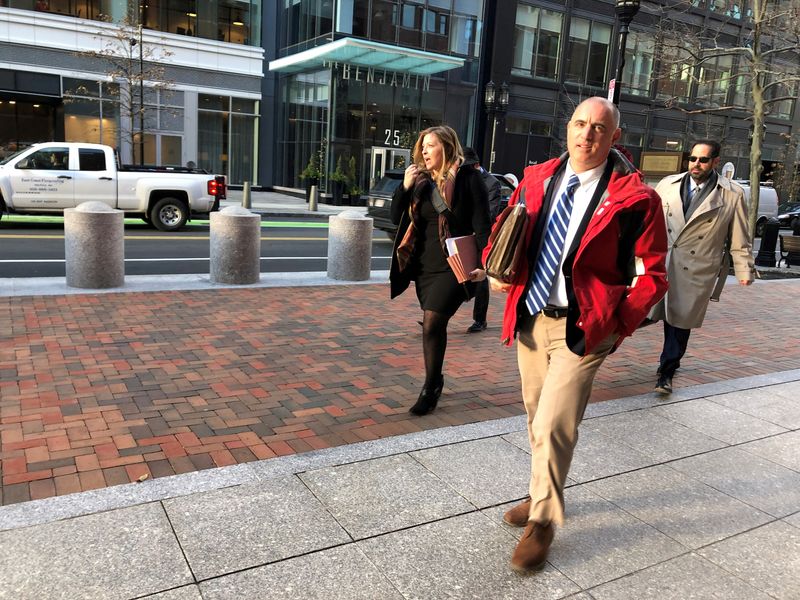By Nate Raymond
BOSTON (Reuters) – A co-owner of a Massachusetts compounding pharmacy whose mold-tainted drugs sparked a deadly fungal meningitis outbreak in 2012 was sentenced on Thursday to one year in prison for deceiving regulators to avoid federal oversight before the tragedy.
Gregory Conigliaro was sentenced by U.S. District Judge Richard Stearns in Boston after a federal appeals court last year revived his conviction for conspiring to defraud the U.S. Food and Drug Administration ahead of the outbreak.
He was among 14 people associated with Framingham, Massachusetts-based NECC who were indicted after mold-tainted steroids it produced sickened 793 people nationally, including more than 100 who died.
The defendants included Barry Cadden, NECC’s ex-president, and Glenn Chin, its former supervisory pharmacist, who were convicted of racketeering and fraud and are serving prison sentences of 14-1/2 and 10-1/2 years, respectively.
Conigliaro, Cadden’s brother-in-law, was not charged over the tainted drugs. But Assistant U.S. Attorney Amanda Strachan said his lies to regulators in the decade beforehand ensured NECC remained open, allowing the tragedy to unfold.
“He was responsible for keeping that business open until they got caught,” Strachan said.
Prosecutors said Conigliaro, 57, conspired with others at NECC to deceive the FDA into believing it was operating like a conventional pharmacy subject to state oversight and not like a drug manufacturer subject to tougher federal oversight.
Prosecutors said Conigliaro in particular misled the FDA into believing it was dispensing drugs pursuant to valid, patient-specific prescriptions like a typical pharmacy when it was actually shipping drugs nationally without them.
A jury in 2018 found Conigliaro guilty, but Stearns threw out his conviction, saying it was legally impossible for Conigliaro to have impeded the FDA’s functions. A federal appeals court disagreed and reversed that decision in 2021.
In addition to prison, Conigliaro must pay a $40,000 fine.
He told Stearns that had he known about the “horrible” conduct that occurred in the so-called clean rooms in which NECC’s drugs were produced, “I would have done everything and anything possible to stop it, period.”
(Reporting by Nate Raymond in Boston; Editing by Bill Berkrot)
